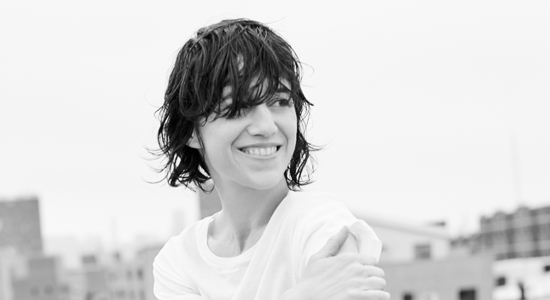
With her first studio album in eight years, Charlotte Gainsbourg grieves the loss of loved ones
Charlotte Gainsbourg didn’t plan to have two films and an album coming out in the same season, but, c’est la vie. She’s starring in The Snowman and La Promesse De L’aube and releasing Rest (Because), her fifth album and first studio outing since 2009’s Beck-written/produced IRM.
“I don’t decide anything,” says Gainsbourg about the scheduling convergence. “I can’t push a film back in order to finish an album. It’s not possible that way. So the music has always come second.”
Second in her schedule but not in her heart. She likens making albums to directing films, but compared to acting, they’re more “personal” as well as more “demanding.” This coming from the actress known recently for accepting demanding, and controversial, roles in the films of Danish director Lars von Trier.
“It’s true that I’ve had more experience with films than with albums,” says Gainsbourg. “I can’t say music comes second, but I feel less experienced, although I started both at the same time. I was 12, and I did ‘Lemon Incest’ with my father, and I did Paroles Et Musique, which was my first film (both in 1984). I like to keep it that way in my mind, that I did start with both feet in both directions.”
Gainsbourg’s father is, of course, Serge Gainsbourg, the late French superstar, and her mother is British actress and singer Jane Birkin. It was a long time after her father’s death in 1991 before Gainsbourg felt she could return to music: She made her first album with him when she was a teen and didn’t make her second, 2006’s excellent 5:55, until two decades later. To distance herself from her father’s legacy, Gainsbourg has sung mostly in English; Rest marks the first time she’s written all the lyrics herself (except for one song that she happened to have sitting around written for her by Sir Paul McCartney), and it’s the first time she has sung predominantly in French.
Gainsbourg started thinking about the album five years ago, first working on demos with New Zealand psych/pop artist Connan Mockasin, then with French electronic composer SebastiAn. Gainsbourg’s first meeting with SebastiAn was a disaster: He showed up late, drunk and full of “paternalistic” advice. Gainsbourg says they laugh about it now.
“He was saying very true things, but I was quite charmed by him and at the same time I thought he was exactly wrong,” she says. “He was saying, ‘You should do an album in French. You should sing exactly as you did with your father.’ He was being a little too sure of himself.” But Gainsbourg still shared her ideas for the album: She wanted a dark, electronic sound inspired by horror-film scores.
“At first that could sound very contradictory to my voice and to the fact that I don’t have a big singer’s voice, and I wanted something really heavy, musically,” says Gainsbourg. But SebastiAn, who produced most of the album, proved to be the collaborator Gainsbourg wanted. They did some demos in France, but most of the album was completed in Brooklyn, after Gainsbourg and her family moved to New York City following the death of her stepsister, fashion photographer Kate Barry, in 2013.
Barry’s death haunts Rest. Several songs address her directly, and several others implicitly. “Lying With You” recounts Gainsbourg’s deathbed visit to her father. The album title comes from the most delicate track, one she did with Daft Punk’s Guy-Manuel de Homem-Christo, and it alludes to both “rest in peace” and the French for “stay,” as in “stay with me.” That double meaning in two languages is appropriate, too, since many of the songs alternate verses sung in French with English choruses. Rest is full of dichotomies. Along with the orchestral tones extrapolated from film scores, there are moments of perky new wave, gentle waltzes and singsong nursery rhymes. It’s not a sad album.
“It’s important to express the grieving not only with sadness but also with anger,” says Gainsbourg. “I like to work with oppositions. Even the last track (“Les Oxalis”) is sort of nearly a disco—there’s a sort of very dancing mood to it—but at the same time the words express a ballad in a graveyard. The words are completely opposite. That’s the way I could keep a bit of privacy: to be very transparent with my words but to have some kind of shield with the music.”
Alternating languages within the songs was a conscious choice in order to manage the emotional distance, too. Many of the lyrics began as journal entries, and Gainsbourg was coping with loss.
“I did it in a very selfish way,” she says. “I needed it to be personal, and I needed to say these things. Not as a therapy to try to get better, but the only way I could talk is sort of talk to myself and to the people who are dead and who I love. I needed to be very direct with the way I spoke out. The French helped in that way; the French was a real support when it was a question of being very sincere and even crude, or quite real. The English was a good excuse for me to be more sentimental, and of course more rhythmical, because the English sounds nicer. It’s an easier task to write in English, but the sincerity is more in French.”
—Steve Klinge






